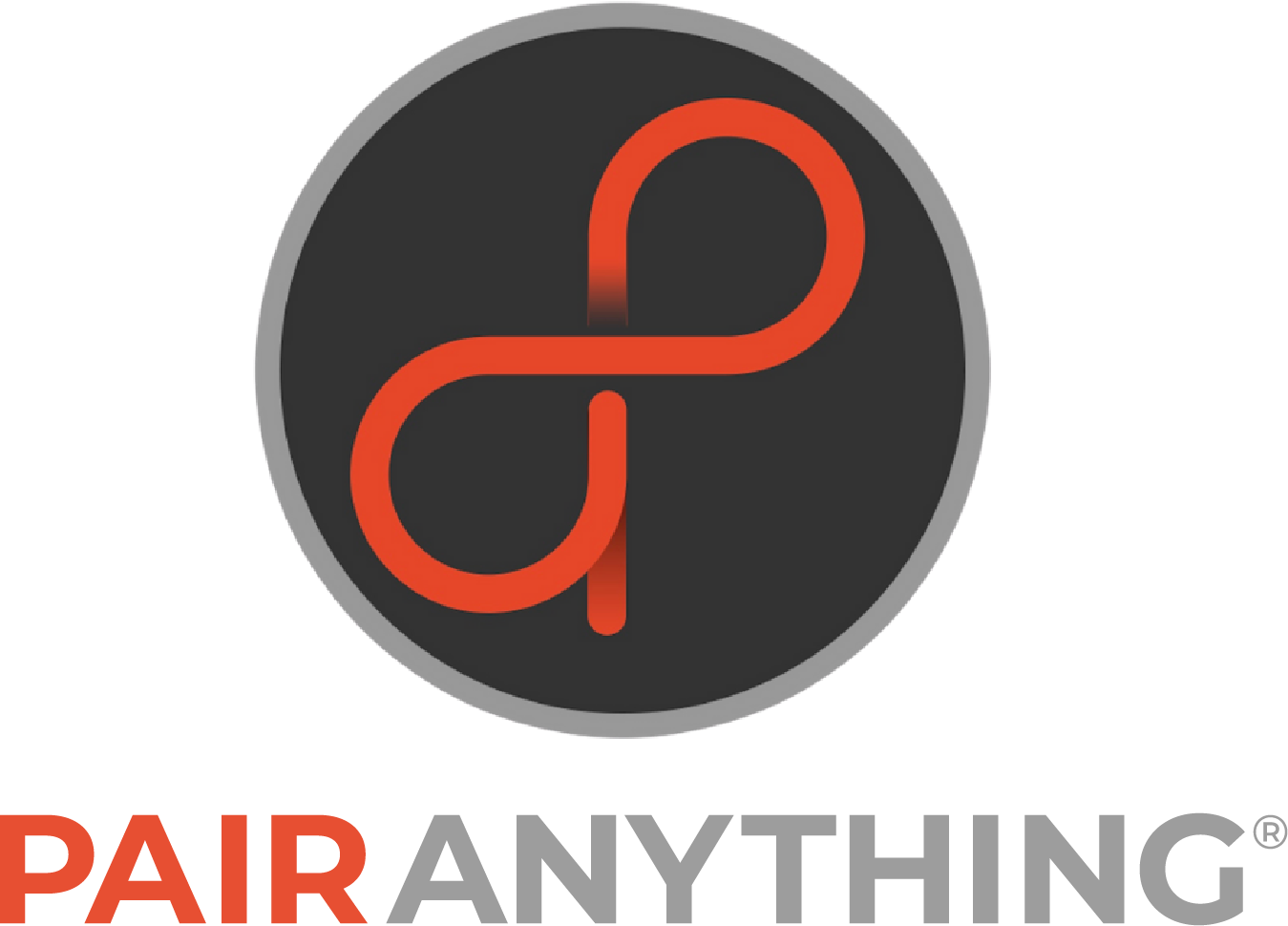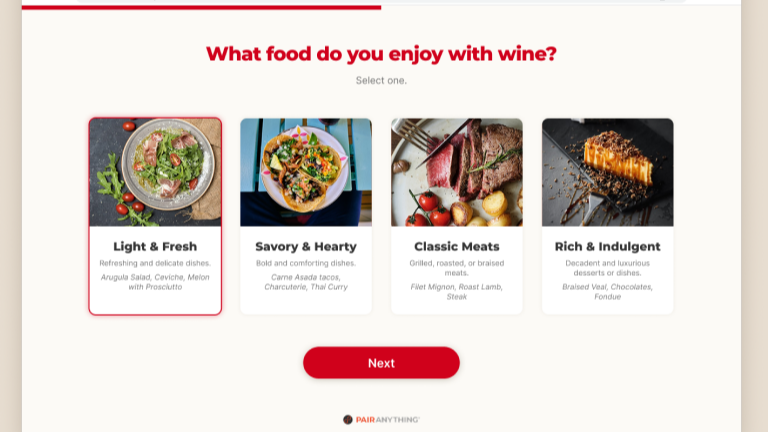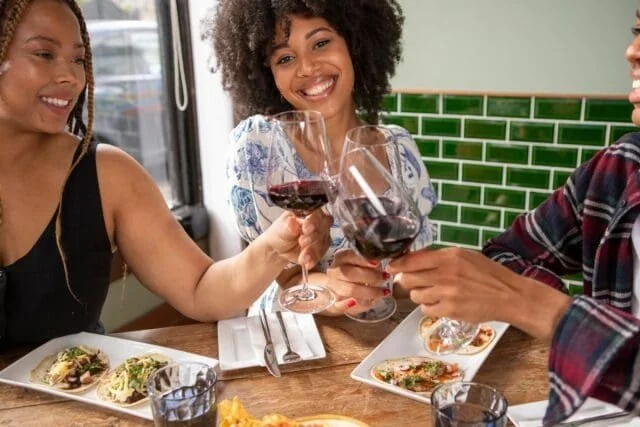Rethinking Personalization in Wine
The future of wine lies in personalized, culturally relevant discovery powered by innovation.
A great recommendation shouldn’t just confirm your preferences. It should open a door — to something new, surprising and personal. We are more complex, more curious and more open than any algorithm can predict.
When Personalization Misses the Mark
What we enjoy in a glass of wine is shaped by a rich blend of factors, including identity, upbringing, mood, cuisine — even who we’re with. Yet most recommendation tools overlook that nuance. Plug in a few preferences, (“bold reds”, “dry whites”), and a list appears, as if our tastes are fixed, formulaic and easy to monetize.
That’s not personalization. It’s prediction. And prediction stifles discovery. It nudges us toward what we already know, slowly training us to choose comfort over curiosity.
Friend enjoying wine with food
How to Make Wine Relevant
Wine should feel intuitive and inclusive, not just better predicted. Identity and context matter. Here’s how we can all make wine more relevant:
Explore through culture. Wine isn’t just for steak and cheese boards. Match wines with the cuisines you grew up with or that you’re exploring. Think Pinot Noir with chicken adobo, Riesling with pad Thai or pét-nat with dim sum. Cultural context adds meaning and magic to every pour.
Embrace the unknown. You don’t have to “know what you like.” Curiosity is the best guide. Try one new wine per month that’s outside your usual picks — perhaps from an underrepresented region or maker. Discovery often lives just outside your comfort zone.
Track your experience, not just ratings. Wine ratings offer a critic’s view, but they don’t capture you. When you enjoy a wine, jot down why. Was it the setting? The meal? The memory it sparked? That context shapes your palate far more meaningfully than a number ever could.
Reimagining Wine for the Modern Consumer
The wine industry stands at a pivotal moment. Traditional consumption patterns are shifting. The future lies in translating personal taste and cultural identity into empowered, data-informed recommendations.
This is more than a response to a downturn. It’s a roadmap for growth. By making wine curious, relatable and culturally resonant, we can invite more people into the experience — and earn their loyalty for years to come.
Here’s to a more welcoming, personal, and dynamic future of wine.
If you’re ready to modernize how you connect with customers, we’d love to talk.
Read the published article to hear about the wine associations already embracing innovation:
When Wine Associations Face Change: Turning Challenges into Opportunities - Wine Industry Advisor



